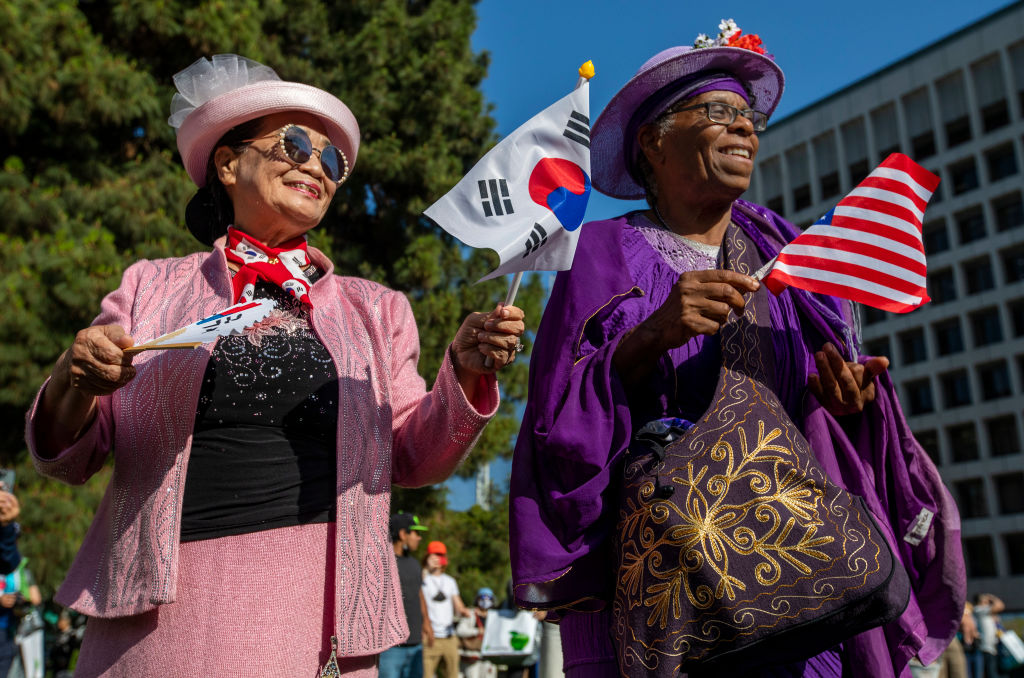LA Uprising Commemoration Focuses On Building Across Communities
Source: Francine Orr / Getty
Black and Asian organizers with UndocuBlack Network and NAKASEC commemorated the 30th anniversary of the Los Angeles Uprising with a panel discussion highlighting the common ground between the two communities. The discussion is a part of a broader series of conversations and convenings led by the two organizations.
Four years ago, NAKASEC and the UndocuBlack Network co-hosted a convening called Woori Ujima. According to Haddy Gassama, UndocuBlack’s director of policy and advocacy, the phrase combining Korean and Swahili means “our collective work and responsibility.”
We can build solidarity towards a future where we can truly live together.
We must be united against our common enemies: imperialism, white supremacy, patriarchy, and capitalism.
Our liberations are tied together, and we constantly need to bridge the gap through solidarity. pic.twitter.com/MFjMdhwYjN
— NAKASEC #WeCantWait #Citizenship4All (@nakasec) April 29, 2022
The conversation also comes at a crucial point as media narratives amplify divisions between the two groups. Highlighting Korean American commemorations of the uprising, NBC News quoted Asian Americans Advancing Justice – Los Angeles’ Chief Executive Officer Connie Chung Joe noted that these divisions were sometimes the focal point of media narratives of the time. AAAJ-Los Angeles is one of six Black and Asian organizations that came together Friday, memorializing the day with a peace gathering in Koreatown’s Liberty Park. (Read more here).
Panelists echoed this concern noting that media often focuses on the conflict between the communities. Instead, white supremacy operates to neutralize equity and justice in both communities. The conversation did not pretend to speak for all relationships and interactions between Black and Asian communities, notably in this case Korean communities.
Min Hee Cho, an undocumented organizer with HANA Center from Chicago, spoke about how the LA Uprising was something left out of her education growing up. Cho used her time to connect the different community struggles, noting points of intersection.
“I’m reminded that Black and Asian communities share a linked history of oppression in the US, but has been twisted to pit us against one another,” Cho Began. “In reality, the system that killed six Asian women in Atlanta and has attacked our innocent Asian elders is the same system that disproportionately killed Black people at the hands of police and has made Chicago one of the most segregated cities in the country.”
Cho also called out the feelings of scarcity in resources and opportunities that sometimes drive communities to blame one another instead of recognizing the “policies in place that they’ve used to keep us quiet such as redlining and segregating neighborhoods, the model minority myth and abhorrent criminal justice system and the good and bad immigrant narrative.”
Watch the full conversation below.
SEE ALSO:
30 Years After LA Uprising Police Accountability Is Virtually Nonexistent But The Money Still Flows

